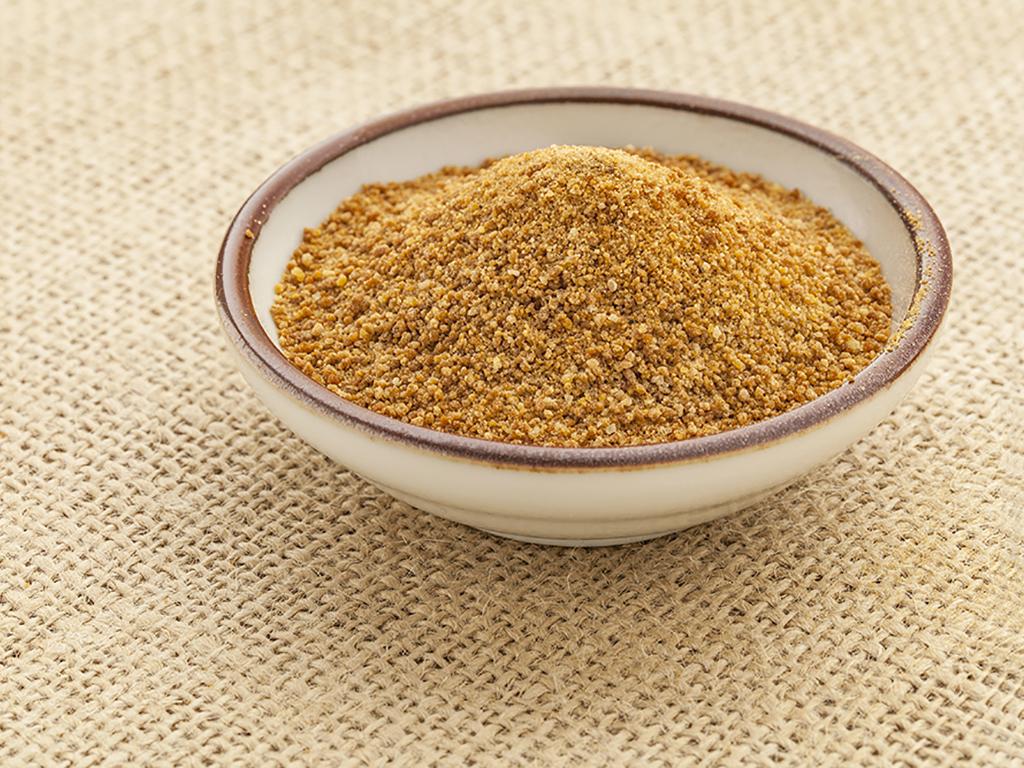4 Mins Read
With the holiday season coming up, it’s hard to avoid the sugary highs that are ubiquitous during the festivities. Cakes, puddings, cookies, it’s a sweetness fest out there. But as we are always banging on about, white sugar is simply not good for you. However, there is no need to be a total grinch. You can still indulge your sweet tooth and engage in some yuletide baking- just use coconut sugar instead. Below we tell you everything we know about the wonder sweetener from Asia that has taken the health world by storm.
What Is Coconut Sugar?
Coconut sugar, also known as coconut palm sugar, coconut crystals, coconut flower sugar and coconut nectar, is the liquid or granulated form of the sap that is produced by coconut flowers on the coconut tree. Not to be confused with palm sugar-there are many different varieties of palm trees and many of them produce sap but it is important to make sure you are getting the sap from the Coco Nucifera species of palm- AKA the coconut palm tree. Coconut sugar tends to come from countries where coconut trees are plentiful such as Indonesia, the Philippines and Thailand.
Why Is Coconut Better For You?
It’s Unprocessed
Coconut sugar is one of the least processed sweeteners around. Coconut nectar is totally untouched, the sap just collected from the flowers and bottled- just make sure to buy from a brand that comes in glass jars. Coconut palm sugar are granules and they are barely touched either- the sap is left to dry (usually in the sun) and then ground up or minimally processed with heat to evaporate the water out.
Coconut sugar is mostly raw, always unfiltered and never bleached. No heavy machinery, no colorants or additives, no toxins or preservatives. Just a golden liquid produced by Mother Nature 🙂
It’s Low-Glycemic
Coconut sugar does not cause blood sugar spikes like many other sweeteners- its slow energy release means you avoid energy crashes. It falls relatively low on the glycemic index with a score of between 35 and 45- for reference, white sugar is around 60 and honey clocks in at 55. That makes coconut sugar a positive choice for diabetics and those with insulin issues.
It’s Rich in The Good Stuff
Coconut sugar is packed with minerals. It is high in magnesium, calcium, zinc and iron- plus it contains loads of B vitamins too. It is full of amino acids- it has 16- with glutamine being the most present.
It Tastes Great
Coconut palm sugar is one of the rare natural sweeteners that doesn’t have an overbearing flavour (here’s looking at you yacon syrup!) or leave you with an unpleasant aftertaste (sorry stevia). It tastes quite similar to cane sugar but with a deeper, richer array of flavour.
How To Use Coconut Sugar
You can use coconut sugar granules as a substitute in any recipe which would usually require sugar in a 1 to 1 ratio. It’s the IDEAL replacement for brown sugar (it makes great cookies). Coconut flower nectar, the liquid version, is a perfect substitute in recipes that call for agave syrup, maple syrup or honey.
Read: Find out why you should avoid agave here.
When buying coconut sugar, make sure you check the ingredients list: avoid any product that isn’t 100% pure coconut tree sap. Palm sugar often masquerades as coconut sugar and lots of cheap brands mix coconut sap with white sugar.
How Eco-Friendly Is it?
Coconut sugar is pretty sustainable overall- it doesn’t endanger the farmers, it is not an industrialised product and it pays the farmers well compared to other crops. Further, the trees can produce sap for up to 20 years and they bear more per hectare than sugar cane plants. Coconut trees require very little in the way of fertilisers or any kind of pesticide- better for your health and a boon for the farmers as it means they don’t need to go into debt to companies like Bayer. Finally coconut tree planting does not damage surrounding land and waterways.
There is one big downside though: coconut sugar production is considered controversial because once you remove the tree’s flowers, it no longer able to produce coconuts. Harvesting coconut palm sugar from the flowers means the tree cannot be used used to make all the other awesome coconut products that we all love so much, such as coconut oil, coconut milk, coconut water and coconut cream. When you don’t harvest the sap, a healthy coconut tree can bear fruit for around 80 years. Those against coconut sugar production argue that it’s more profitable and sustainable to use coconut trees for coconuts.
Green Queen Recipes Featuring Coconut Sugar
Don’t forget to try our delicious range of recipes made with coconut sugar such as :
Image courtesy of Ekowarehouse.





